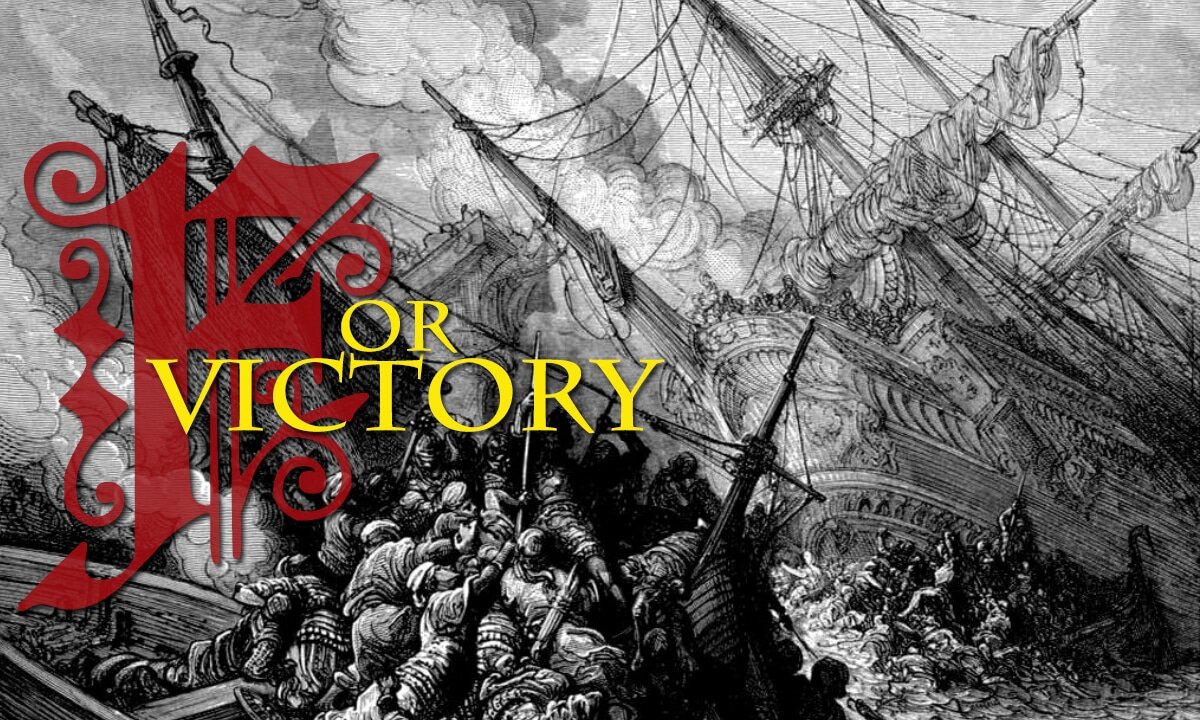For Victory
For victory or for ruin, G.K. Chesterton assured readers of G.K.’s Weekly that in his mind there should be “no mistake or misrepresentation about my view of what ought to occur.” Chesterton’s vision for Distributism was an incarnated prefiguration of the celestial on earth, just as Christendom had been historically for the world. Ingrained in his final words was a deeply held belief that mankind could once again rebuild the pillars of society it had lost.It is precisely with “what ought to occur” that we turn from the theoretical framework for Chesterton’s vision and explore how practical Distributist culture translates into contemporary society. We must use the fundamentals we have inherited and the innate opportunities in today’s reemerging interest in Distributism as a tour de force through the Internet, published works, conferences, and political influences. In order to do these, however, we must first be frank about what did and did not “occur” since the death of our great founder.In Europe, neo-Distributism achieved success through industrial cooperatives, while little has recently been done with respect to original reforms proposed by early distributists like Fr. Vincent McNabb, expressed in the practical work of the Catholic Land Movement and Ditchling Guild, the call to action by Msgr. Luigi Civardi, the politics of Amintore Fanfani, the revivalism of Christopher Dawson, or the economic brilliance of Fr. Heinrich Pesch.Likewise, while the Distributist economics of E.F. Schumacher has been well received in America, the teachings of men such as Fr. Joseph Husslein, Msgr. John A. Ryan, Msgr. Luigi Ligutti , and the famed anti-Communist Fr. John F. Cronin have faded, as did the influence of organs like the National Catholic Rural Life Conference.The vacuum left in the wake of these late nineteenth and early twentieth century social reformers decimated a previously harmonious relationship between social justice and Christian orthodoxy. An eschewed catechesis of social thought followed, along with a mythical cohesion between popular political ideas, economic Liberalism, and the Christian social order. Whether from the Left or the Right, what passes today as genuine manifestations of the social encyclicals is questionable at best, and perhaps something that Hilaire Belloc, Chesterton, Peter Maurin, and Dorothy Day would not recognize.A great deal of ink has been spilled examining our present turmoil. More eloquent voices have evaluated the chaos we find ourselves in. But the war declared against God and family, like any other war, will never be won on the defensive. Successful reconstruction of our nation will involve stepping outside of our comfort zones, deploying our time and resources with the aim of replacing vice with virtue. The political, social, and economic dimensions are crucial components of life that inevitably shape the future of all humanity: it is our mission to work beyond what is wrong with the world. We must specify, first, what an authentic social order should look like and, second, how to put a Distributist culture into practice, taking inspiration from Pope Pius XII’s gallant directive to “exercise a profound influence on the social, economic, and political life of the country.”Stronger emphasis must be placed on the embodiment of the Distributist ideal and the crucial role activism will play throughout the course of our objectives. Activism always follows organized bodies dedicated to instruction, and so our first step toward change should be educational.Education is beneficial for understanding what is and what should be, so that we may conform ourselves to the vision of the Gospels in the greatest effort to support the salvation of neighbor and self. Institutions operating with these goals in mind aid man in submitting to the Divine Will and direct us toward an orthodox understanding of trade, poverty, distributive and commutative justice, the legitimate exercise of government, and the environment. Given the relative absence of traditionalist, popular schooling in the field of Catholic Social Teaching, the best way to bring serious change is through the creation of a Distributist learning center.Aimed at the general public, theoretical and practical classes designed to develop self-sufficiency, and to prepare families, scholars, and activists in the comprehension and application of the social vision of the Church, will build the leadership needed to persuade and make substantial changes in our various communities. After all, any serious attempt at restoration will have to begin in the parishes and small towns, building from the ground up. Daily and weekend regional seminars could appeal to local parochial schools and homeschool groups. Seasonal workshops could make attendance accessible on a larger national and even international scale. Summer intensive programs would be attractive to Christian colleges, universities, and seminaries as an outsource for student credit.Sample academic offerings may include (1) Catholic Social Teaching, (2) Characters of Distributism, (3) Aims and Means of the Catholic Worker, (4) Benedictine Spirituality, and (5) Small Business Development. Practical courses like homesteading, craftsmanship, agricultural studies, as well as home brewing and viticulture, would be popular in town and country, especially if these included apprenticeship programs.Part learning centre, intentional community, and perhaps think-tank, a Distributist “school” would benefit local study groups, political action committees, outreach programs, and assist in drafting legislation to help new leaders pave the way for the adoption of real reforms.For us to benefit from today’s rapidly growing interest in Distributism, and for us to pursue a future society in conformity with Christian values, we must bridge man’s understanding of his immaterial ends with his material means. Chesterton’s vision “ought to occur,” and a visible educational center will be necessary not just for ourselves but for our children’s children, so that amid the ruin we may be instruments in Christ’s victory.

